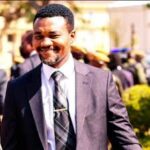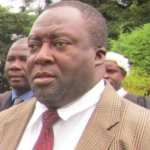…warns that executive power is not a blank cheque advises that constitutional change should remain anchored in the people, as he says constitutional reform that is done by Parliament or on executive discretion offends the Constitution’s basic structure
By NATION REPORTER
THE Technical Committee on the Amendment of the Constitution is an illegality, unconstitutional and must be abandoned, Professor Cephas Lumina has argued.
Prof Lumina, a professor of Constitutional and International Human Rights Law and former member of the United Nations Committee on the Rights of the Child, said Zambians are the true owners of the Constitution and the sole holders of constituent power.
“The people are the owners of the decision to do away with a particular provision and to replace it with another. Any alteration to the Constitution’s text or spirit must emanate from the people themselves,” he said.
Prof Lumina said to argue that constituent power becomes “dormant” after a Constitution is adopted was a misread of both theory and precedent.
“Constituent power remains the standard for judging amendments. Ignoring this, separates constitutional reform from the people and renders it an act of executive convenience rather than democratic legitimacy,” he said.
He was responding to Dr O’Brien Kaaba, who recently argued that there was nothing wrong with President Hakainde Hichilema setting up the Technical Committee on the Amendment of the Constitution.
Prof Lumina said Dr Kaaba had adopted a narrow, literal reading of Article 92 – as though the clause were a blank cheque for presidential creativity.
“I have not questioned the validity of Article 92, only its scope. To challenge interpretation is not to reject a provision. Constitutional scholars routinely debate meaning without descending into sentiment,” he said, referring to Dr Kaaba’s November 7, 2025 article published in the Daily Nation.
Prof Lumina explained that purposive interpretation required reading constitutional provisions in light of their text, context and history.
“Article 92’s drafting history, as seen in the Mung’omba Constitutional Review Commission and the Silungwe Technical Committee Reports, shows it was designed to facilitate the ordinary administration of government – the appointment of envoys, advisers, and special representatives – not to authorise constitutional reform,” he said.
By ignoring that history, he said, Dr Kaaba collapsed executive and constituent power into one undifferentiated authority, turning Article 92 into what the framers sought to avoid: a tool for executive overreach.
“That is neither purposive nor faithful interpretation; it is expedient interpretation, the kind that stretches text to fit a predetermined outcome,” Prof Lumina said.
He warned that Dr Kaaba’s reasoning treated Article 92 as more important than Articles 1, 5, 8, 79 and 90, which protect the people’s sovereignty, the Constitution’s supremacy, and the rules for changing it.
“In constitutional law, context is important. A clause about running the government cannot override the rules for changing the Constitution itself,” he said, adding emphatically that executive power is not a blank cheque.
Dr Kaaba, he said, had wrongly likened the President’s decision to set up the Technical Committee to the appointment of advisers or task forces.
“That analogy collapses once we recall the Committee’s mandate – to collect public views and propose constitutional amendments. That is not executive administration; it is constitutional engineering,” Prof Lumina said.
He said constitutional reform, whatever its form, must reflect the people’s continuing sovereignty. Any process bypassing that principle – through Parliament alone or executive discretion – offends the Constitution’s basic structure.
“We are witnessing the executive repackaging of constitutional reform under the guise of consultation,” he said.
Prof Lumina dismissed the suggestion that the nation should “look beyond legality” and focus instead on achieving comprehensive reform.
“That proposition is both illogical and dangerous. Legality is the foundation of legitimacy; a process born in illegality cannot yield a lawful or trusted outcome.
To ‘look beyond legality’ is to invite arbitrariness – to treat the Constitution as a menu rather than a mandate,” Prof Lumina said.










